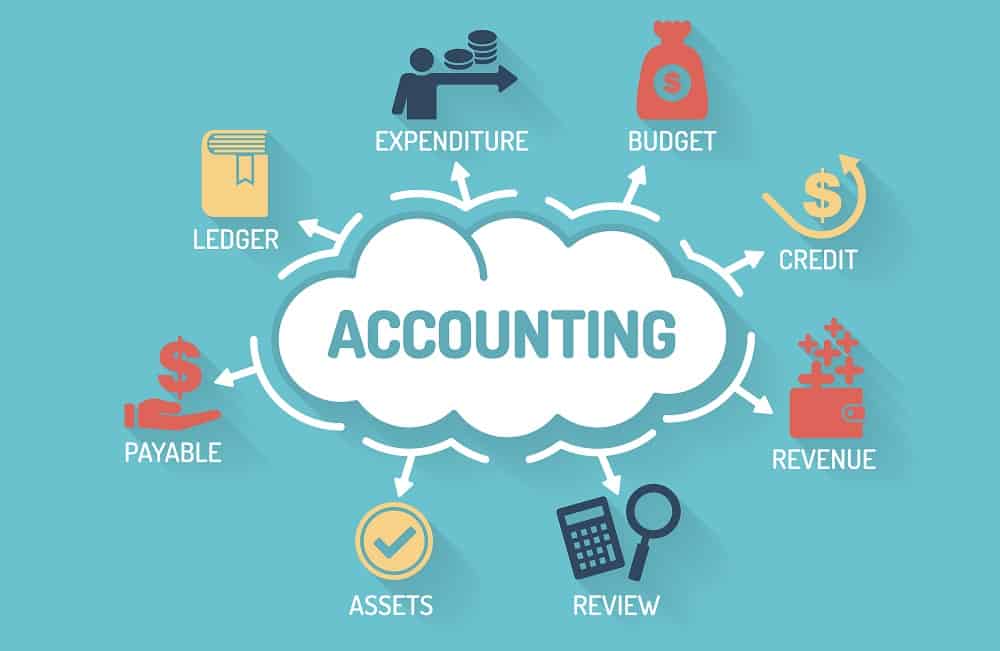The concept of accounting and retention of data related to accountancy has evolved alongside the inception of computerized systems as well as other technology used to compute and store data in a professional setting.
Taking on the form of cloud accounting, software has allowed clients, accounting firms and even corporations with their own internal accounting department to outsource the computing power and digital storage space required for accountancy to external cloud firms.
However, much like anything in the world of finance, cloud accounting comes with its own advantages and disadvantages, leaving the decision on whether to utilize this particular form of accounting software up to the client or accountant themselves.
What is Cloud Accounting?
Cloud accounting is a subgroup of accounting methodology wherein a cloud farm or similar corporation specializing in the hosting of financial information and accounting software provide their particular services to corporations and accounting firms.

This is primarily done in order to reduce overhead costs as well as simplify the process of storing financial information, of which is primarily communicated to the cloud’s servers via gateway or portal software accessible through an internet connection and any sort of computer terminal.
Additionally, cloud accounting is often found to be a far easier to understand method of personal accounting for individuals as opposed to more traditional accounting that requires clients to be physically present at an accounting firm or related computer terminal.
Cloud accounting is generally seen as a cheaper alternative to other forms of accounting and financial information storage due to the fact that the server maintenance costs, software licensing, utility costs and cost of operation are all outsourced to said cloud server farm.
How is Cloud Accounting Used?
Cloud accounting is used through the remote access of an online portal, either taking the form of software present on the client’s machine or through a web site directly connected to the cloud firm’s servers.
This, in turn, allows accounting related information to be retrieved from practically any machine with access to an internet connection, also working in reverse wherein accounting software made for computation and bookkeeping can be accessed in much the same way.
This allows cloud accounting to facilitate the general work of accounting and informational storage related to accounting, allowing quick and efficient access to relevant financial data from anywhere with an internet connection.
What are the Disadvantages of Cloud Accounting?
While cloud accounting is a relatively modern development and was practically built with efficiency and convenience in mind, certain factors and characteristics primarily relating to cloud accounting can instead act as a detriment, both to the client and to the accounting firm leasing the cloud accounting service itself.
Security
The primary concern, especially in instances wherein the financial information being transmitted is considered sensitive, is that cloud accounting may be vulnerable to security exploits and similar unfortunate occurrences.
This can take the form of phishing site scams designed to fool a client, the use of various malicious programs installed on the client or accounting firm’s machines, direct data packet interception, or even simple social engineering.
External parties may wish to acquire the sort of financial information that is oftentimes stored and transmitted through cloud accounting and its subsequent servers, as said information can be incredibly valuable in the right hands, allowing individuals to perform calculations that would otherwise be impossible without said financial information.
Additionally, it is not only financial information that is usually stored in cloud accounting servers, with the particular type of information depending on the sort of software involved and the purpose of said software.
Data leaks can potentially be disastrous, not only for the client whose information has been released, but also for the cloud accounting service provider themselves, as information like individual personal details, internal memos and even proprietary software coding can all be acquired through security exploits.
While it is true that cloud storage servers utilized in the service of cloud accounting are secured to the best of the provider’s abilities, it only takes a single data leak or opportunistic hack to significantly damage the reputation and finances of clients and firms alike.
Recurring Costs
While it is true that cloud accounting is generally seen as less costly and more efficient than some other forms of accounting such as traditional accounting, cloud accounting service providers often charge a scaling fee that is dependent on the particular storage space, computational power and bandwidth being used by the client.
This, especially for large scale corporations or firms, can mount up over time, leading to large costs that admittedly may still be less than hosting a proprietary form of accounting software on the premises of the corporation or firm.
As the client of the cloud accounting provider grows in complexity and financial ability, so too will the costs associated with retaining the cloud accounting service, especially as more employees or users are brought into play in the form of additional clients.
Lack of Human Supervision
Cloud accounting is primarily performed through the use of pre-programmed software, removing the presence of a human apart from that of the client.
This may be considered a disadvantage to certain clients or in some situations, as software can occasionally malfunction, potentially costing the client corporation or firm in terms of time and money.
However, it is likely that the majority of cloud accounting service providers retain some sort of customer service department in their corporate structure, as well as more specialized individuals that may act in a faciliatory capacity in the event of any sort of software or hardware malfunction.
Fortunately, particularly smart cloud accounting service providers often create redundant backups, both of the software itself and that of the client’s information, of which could possibly be accessed without the need for human supervision save for the client themselves.
External Technological Limitations
It is true that cloud accounting is among the latest in hardware and software developments within the accounting industry, constantly being updated so as to add new features and patch any exploitable vulnerabilities that may be present in the programming.
However, like all technology, cloud accounting has its own limitations, with factors like internet connection speed, cellular data area coverage and even software design oversights all acting as potential roadblocks that prevent cloud accounting from reaching its full potential as an efficient and convenient accounting method.
This is not to say that these technological limitations will always be present, though, with the constantly developing nature of modern telecommunications and programming indirectly improving upon cloud accounting itself.
Reliance on Non-proprietary Software
While not exactly a major disadvantage of cloud accounting itself, certain clients with specific needs pertaining to software function and data storage may find that the sort of software being programmed and leased by the cloud accounting firm is made with more of a general use in mind.
This, naturally, equates to cloud accounting software being unable to function in specific situations that it is not built for beforehand, necessitating either requests be filed with the subsequent coding department of the cloud accounting software’s developers or for the client to search for alternative software that can meet their particular requirements.
Bandwidth or Data Limitations
Though technically also considered a technological limitation, bandwidth limitation is the maximum total volume of information transferred between the client’s terminal and the cloud accounting servers at any given time, occasionally referred to as data limit or similar terms.
A standard business practice found in the cloud accounting software and storage industry is to charge clients depending on the level of service utilization they accrue during day to day operations. This, in turn, equates to clients becoming “soft-locked” by their own budgets in the event that they cannot afford the increased fees.
This means that the cloud accounting service provider will limit the amount of data storage and computational power the client can utilize, both to protect the provider from being unable to provide the same utilization to other clients and to prevent the clients from defaulting on payments.
References
1. Otilia Dimitriu, Marian Matei, Cloud Accounting: A New Business Model in a Challenging Context, Procedia Economics and Finance, Volume 32, 2015, Pages 665-671, ISSN 2212-5671, https://doi.org/10.1016/S2212-5671(15)01447-1.
2. Kinkela K., College I. Practical and ethical considerations on the use of cloud computing in accounting. Journal of Finance and Accountancy. 2013.
3. Abdalla, Peshraw & Varol, Asaf. (2019). Advantages to Disadvantages of Cloud Computing for Small-Sized Business. 1-6. 10.1109/ISDFS.2019.8757549.
4. Sun Y, Zhang J, Xiong Y, Zhu G. Data Security and Privacy in Cloud Computing. International Journal of Distributed Sensor Networks. July 2014. doi:10.1155/2014/190903

